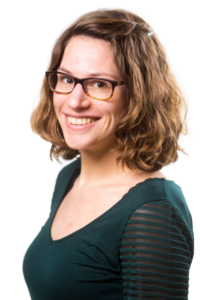Why thriving is a better criterion for PhD success than excellence (part 1)

For her PhD project Katharina Lemmens-Krug (MSc UTwente) is studying challenges of present-day universities regarding their governance – more specifically concerning steering capacity of university leadership and the relation with centres for excellence in teaching and learning. In this interview dr. Claartje van Sijl talks with her about ways to understand excellence from the individual researcher’s perspective. The interview was conducted through several emails back and forth in November 2018. This is part 1, in which we discuss thriving as a PhD.
Claartje: Excellence is a much debated criterium to assess research (cf. e.g. here and here). What would you say marks an excellent PhD project or candidate?
Katharina: I would like to talk about excellence from the individual view of people. I think we should focus on thriving during your journey, be it a study programme, a PhD training, a research project or any other job – instead of excellent PhD projects or candidates. I was especially inspired by a vlog of Tara Brabazon (Dean of graduate research and professor of cultural studies at Flinders University, Australia). I think excellence during a PhD project foremost is about the experience a person has. Thriving connotes this focus on your personal experience better than excellence, which has the taste to it that someone else decides whether your PhD project is excellent or you as a candidate are excellent. Focusing on thriving is important especially because research on attrition rates report that reasons for PhD candidates to not continue with their PhD are not academic and not related to intellectual abilities (Brabazon, 2018).
Four elements to thrive in your PhD
To be able to thrive in your PhD Tara Brabazon mentions four elements, three of them I find especially helpful – meaningfulness, expectations and achievements. Meaningful journeys are relevant because they lead to motivated people who are engaging in their work. I see a link here to the dimension of curiosity and meaningfulness Henk Molenaar describes, because curiosity leads to motivation to achieve something, be it answering a research question or be inspired by questions of students and finding answers together with them.
The second element are expectations, which should be managed in order to prevent disappointments. I think an ‘excellent’ PhD project is marked by managed expectations, personal ones and the expectations from people around you. One of the big advantages of managing your own expectations is that you gain a better sense of relativity and you might not overestimate what you are able to do. This prevents frustrations and I think helps a PhD candidate to thrive, because realistic steps that are achieved are better than unrealistic steps you do not achieve. And then there are expectations of people around you. Talking to your supervisors about what they expect will be helpful in making more achievable plans and also in uncovering issues a PhD candidate might need some help or support with, be it content-wise or process-wise. Tara Brabazon gives the tip of layered expectations, which means that if one plan does not work out a plan b, c or d is ready to be set in place. This creates a sense of safety, because there are fallback options that can get you through.
Lastly, I agree with Tara Brabazon that PhD candidates should log their successes in one form or another and see what they already achieved. Noticing achievements helps to build confidence in your learning abilities and will be a good motivation through your PhD project.
C: Thank you for introducing Tara Brabazon’s vlogs. She gives great advice.
You link meaningful journeys to curiosity. Can you explain how you see this relationship? In my experience researchers often start from curiosity, but on its own this is not enough to sustain them through the hard parts of their research project. Curiosity can drain away in the face of daily academic realities. If they do not feel that their work is meaningful beyond satisfying their curiosity, the going gets very though.
K: Thank you for your input to reflect on the link between curiosity and meaningfulness. I think there are multiple layers to meaningfulness. Curiosity is the spark that makes you think about a problem and then this is meaningful to you by default. But during the ‘lonely’ PhD journey I think PhD candidates have to derive at meaningful experiences beyond the initial spark from curiosity. At this more concrete level I see individual reflections about how focusing on small tasks can support the more abstract goals of a PhD project. Moreover, meaning can be found in other activities as well and the experience of learning as such can be meaningful.
C: Does thriving imply success? Or, when do you consider a PhD successful?
K: I think PhD candidates which are thriving, are in control of their journey, in tune with their own expectations and expectations of the supervision team, will in the end result in a successful PhD. Foremost it is about the experience of the people which will make the success of a thesis. And content-wise I think a PhD candidate who has open conversations about individual expectations and the expectations of the supervision team will deliver a successful PhD thesis as well.
C: A common critique of doctoral education is that it does little to prepare people for a career outside academia. You might say that this means that a successful thesis (and defense) does not necessarily imply that the PhD holder as such is successful, i.e. that the candidate is thriving after the PhD project. To what extent does this influence your idea of PhD success?
K: PhD candidates who have learned how to thrive during their PhD will probably also thrive after their PhD. For me a key success to a fulfilling career are the elements I have mentioned before: meaningful work, reflecting on your achievements and be in open dialogue with the people you work with and communicate expectations and mitigate ‘wrong’ expectations.



Plaats een Reactie
Meepraten?Draag gerust bij!